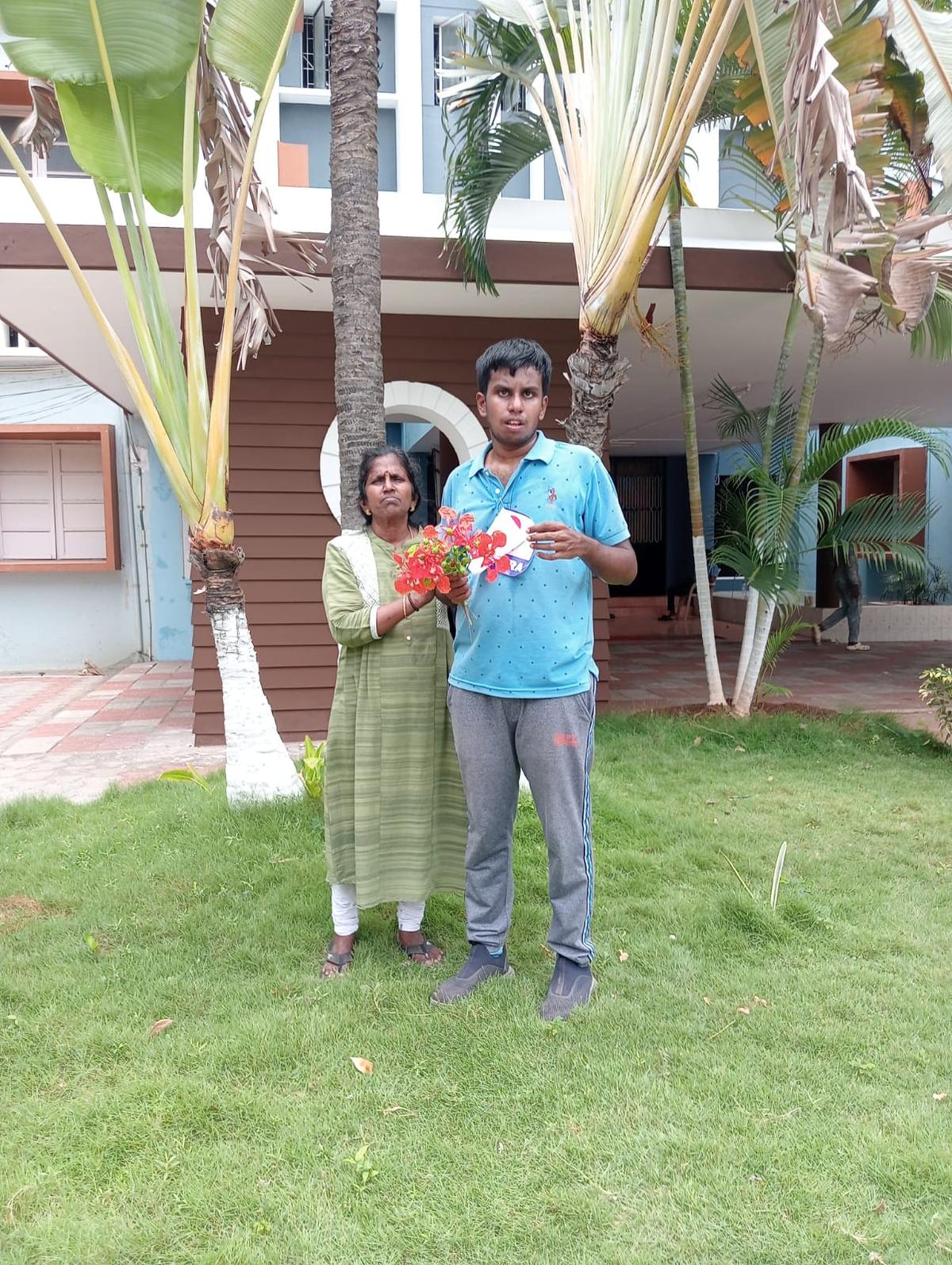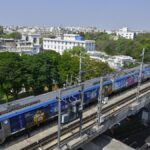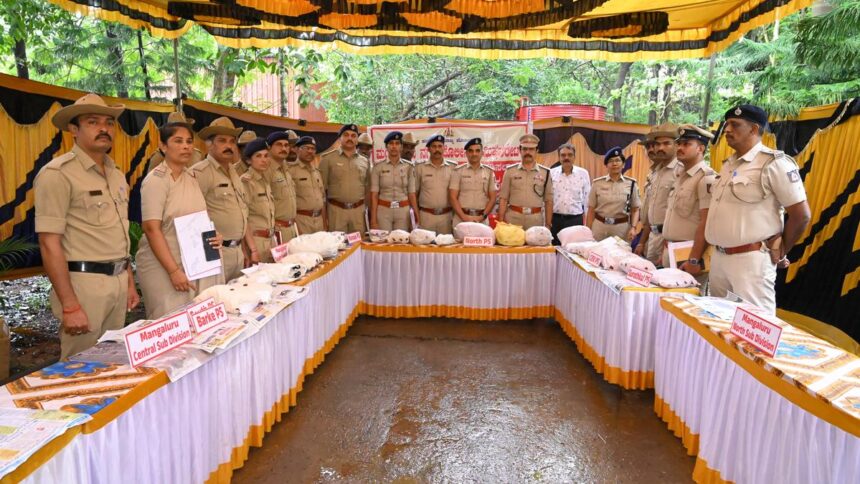Saravanan Umapathy will open a new chapter in his career on July 21 when classes begin at Dhanraj Baid Jain College in Thoraipakkam. The 23-year-old special needs student is on the spectrum and non-verbal but exhibits strengths in visual thinking and processing that led his mother to enrol him for a course in B.Sc (Visual Communication).
“I know my son will face challenges with social interaction and communication, but he will not disappoint in academics, and I want him to surmount those barriers,” says S. Kamala, adding that Saravanan communicates by writing or typing on the Awaaz app.
Brought up in Abu Dubai, where he completed his studies in a mainstream school, Saravanan did not take the help of a shadow teacher and is good in sports as well. Over the last one year he was pursuing a data entry course at NIEPMD from where he also picked up Tamil and the confidence to apply for higher studies.
“He is currently getting trained to cycle on Chennai’s busy road, so that he can get to college from his home in Pallikaranai,” says a determined Kamala.

Saravanan with his mother S. Kamala
Many city colleges in Chennai are taking baby steps towards making their classrooms inclusive, a mandate under the National Education Policy (NEP) 2020.
In the last academic year, Welfare of the Differently-Abled Persons Department issued a circular to 19 universities in Tamil Nadu reminding them that they have to reserve five per cent of the seats in higher education for persons with benchmark disabilities.
As per data from National Institute for Empowerment of Persons with Multiple Disabilities (NIEPMD), 18 of their students with intellectual disability, autism spectrum disorder, special learning disability and multiple disabilities enrolled in various city colleges in the academic year 2024-25 for higher education. These include courses in hotel management, arts and science and polytechnic.
“Our programmes offered here act as a bridge to integrate those with special needs into higher education,” says K. Balabaskar, lecturer-AIL, NIEPMD. He says the Institute has an exclusive coordinator, R. Dhakshnamoorthy, to support parents to select the right institute and courses.
Higher education plays a transformative role in the lives of persons with disabilities, which contributes to their personal growth, employability and social inclusion. “Although some city colleges have exclusive batches for PwD or inclusive classrooms, it is the Rights of Persons with Disabilities (RPwD) Act, 2016 that mandates a 4% reservation for persons with benchmark disabilities in direct recruitment to government jobs, that has come as a big encouragement for parents to find appropriate career courses in higher education institutions,” says Balabaskar.
Parents have to do their homework about institutions and career paths that best suit their child.
B. Sumathy, whose son S. Muralidhar is pursuing his second year of B.Sc (visual communication) from A.M. Jain College in Meenambakkam, says many parents of children with special needs do not make an effort to place their ward in a mainstream college fearing the environment. Or, they think of distance education.
She herself was planning to enrol Muralidhar in a course through distance education as it is difficult for him to sit in one place for long.
“When I enquired with Madras University they recommended courses in literature and economics, which I was not keen on as my son would not be able to study theory-related subjects,” says Sumathy.
They were discouraged from taking courses that involved lab activity. “I was told programming would be difficult for him, so I enrolled him in a data entry course in NIEPMD that went on for close to a year,” she says.
That brought about a huge change in Muralidhar. “He started getting more disciplined and his time management skills improved, and this gave me the confidence that he can move to an inclusive setup,” says the resident of East Tambaram.
The parents are happy as the college has a supportive environment with a dedicated room where parents can wait, notes are sent on WhatApp and Muralidhar has made many friends.
Orienting staff and students
To create and maintain inclusive classrooms, colleges are getting their faculty trained to understand the unique needs of students, getting permission from the University to exempt special students from writing language papers and finding scribes if needed.
At Agurchand Manmull Jain College, every special need student is attached to a mentor who understands his/her unique needs based on the training they are given to handle such students.
“This academic year, we have five new special needs students on the campus, a slight increase from last year where we had four,” says M. M. Ramya, dean, A.M. Jain College. While most of the infrastructure needs for an inclusive campus are largely met, the college management has been taking up steps to meet other requirements.
“We have a lounge where parents of special needs students can wait while their children attend classes. It is like a crèche; sometimes children want to meet their parents, and on an average five-six parents avail it,” says Ramya. Getting peer support is one challenge and to address this concern this year students were oriented about their specially abled classmates. “This has to be a continuous process,” says Ramya adding that they recommend students joining courses in visual communication and interior design as they are more hands-on.
A programme based on credits
The third batch of the programme in Diploma in Office Automation and Assistive Technology (DOAAT) for persons with multiple and neurodevelopmental disabilities will start soon.
Initiated by the National Institute for Empowerment of Persons with Multiple Disabilities (NIEPMD), under the Ministry of Social Justice and Empowerment, in collaboration with Bharathidasan University’s Centre for Differently Abled Persons, this is a first-of-its-kind credit-based inclusive higher education programme, says a note.
The course is structured over two semesters and focuses on digital literacy, office automation, and assistive technologies. It offers a practice-based curriculum aligned with the Rights of Persons with Disabilities (RPwD) Act, 2016 and the National Education Policy. It also strengthens employment opportunities through the 4% PwD reservation policy, including 1% for persons with intellectual and multiple disabilities.
Ten students are inducted per batch.
For details, call R. Dhakshnamoorthy, vocational instructor / coordinator – Higher Education for PwDs (8124862799)/ K. Balabaskar, lecturer-AIL, NIEPMD, Chennai (9382934157); Email Id: niepmd.dail@gmail.com



















